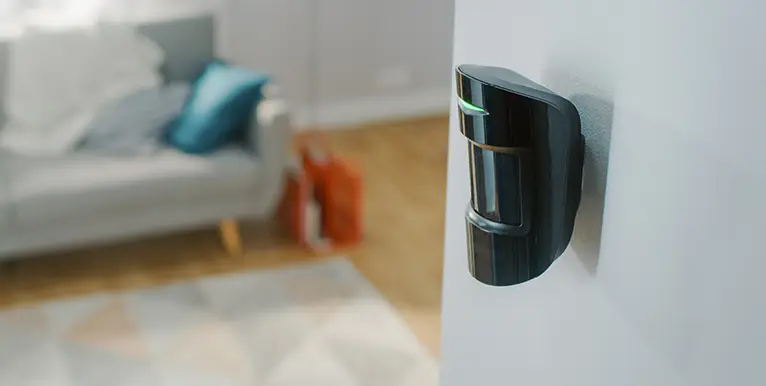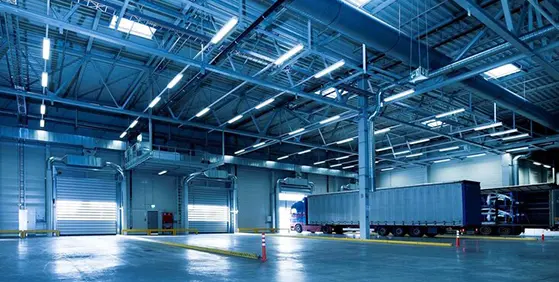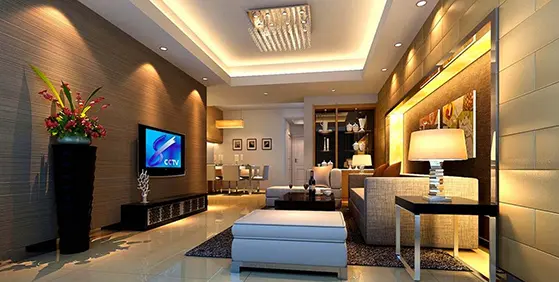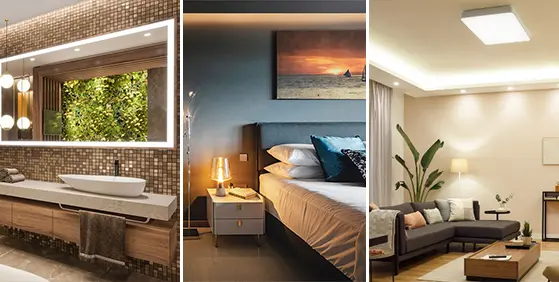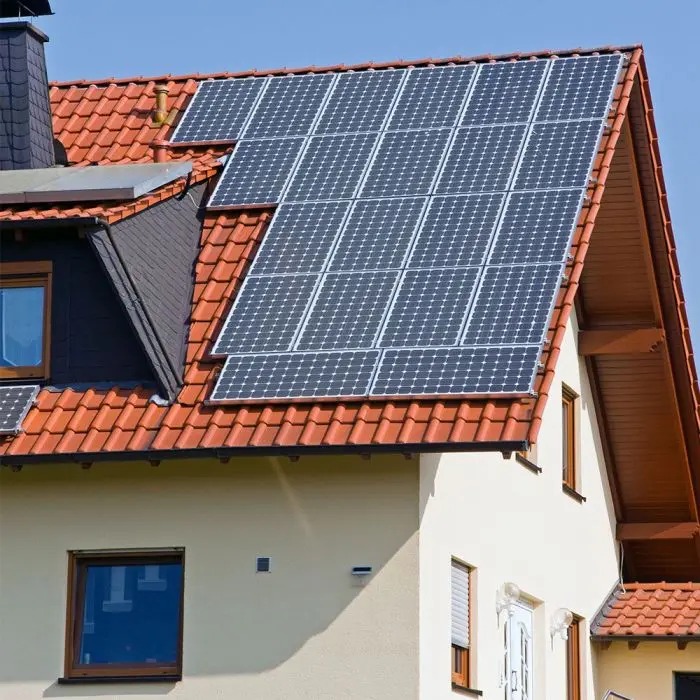Solar panels take the power of the sun and convert it into usable electricity that runs appliances like lighting, ovens, TVs, etc in the home.
Worried that the UK’s cold, wet, and cloudy weather means that solar panels are a waste of money here? Don’t be. The efficiency of solar panels has increased so much in the past decades that they work even in our dreary weather. Even in December, a typical 4kW solar installation (ideal to fit on the roof of the average UK home) can produce 150kWh of power, versus almost 500kWh in summer. That’s enough to power a third to half the home’s electricity requirements in winter.
In fact, the UK now produces over 15,000 megawatts of power from rooftop solar panels in homes and businesses across the country.
Are Solar Panels Worth Purchasing in the UK
1. Environmental Benefits of Solar Panels
Using solar power – a renewable energy source that replenishes faster than we can use it – helps to reduce your carbon footprint.
Measured in tonnes of CO2e, a carbon footprint is the amount of CO2 and equivalent gases released into the atmosphere as a direct result of your lifestyle. CO2 and other greenhouse gases contribute to global warming and climate change and are primarily emitted when fossil fuels like coal and gas is burnt to generate the energy you use in your daily life to cook, heat your home, etc.
Depending on where you live in the UK, The Energy Savings Trust estimates a typical solar power array on your home saves about 1 tonne of carbon per year. That’s 1 tonne of CO2 less in the air every year because you switched to solar.
Congratulations, you’re now a small part of the solution to global warming.
2. Long-Term Savings and Return on Investment (ROI)
Many factors affect the savings you will make with a solar panel installation. How long are you home, where do you live in the country, do you use electricity or gas for your home heating and are you registered for SEG. The Energy Saving Trust breaks down most of these factors for you here, to give the best idea of what you can save. For example, these are the average savings on the electricity bill for a home in SE England, with and without SEG.
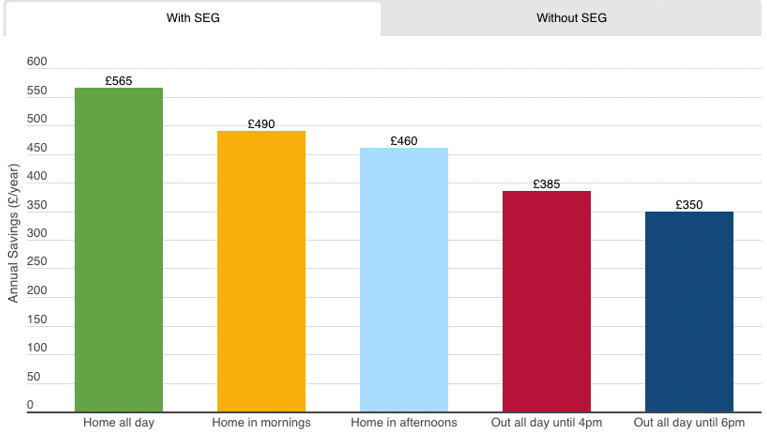
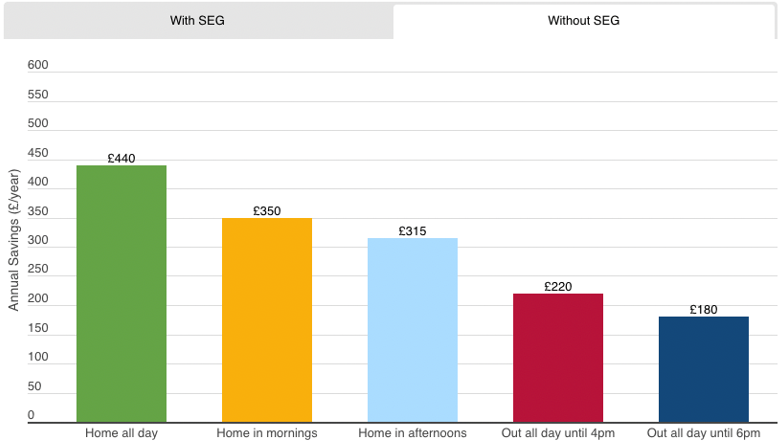 The average estimated return on investment (ROI) for a solar system in the UK is 17 to 20 years, but every case is different.
The average estimated return on investment (ROI) for a solar system in the UK is 17 to 20 years, but every case is different.
3. Energy Independence and Resilience
A solar panel system on your home makes you at least partially independent of the National Grid power supply. This means if there’s a power cut due to supply issues or storm damage to infrastructure, like power lines and sub-stations, you’ll continue to generate electricity for your home.
Adding battery storage means you’ll have power on hand to use at night time too. So you can continue to light your home without resorting to candles.
Can you live off-grid with solar panels UK?
This depends on the size of the solar panel array you install and what electrical appliances you want to run. A solar panel system will easily run your lighting, even in winter, but you will need to add battery storage. While fewer hours of sunlight means less electricity is generated, solar panels are actually more efficient in the cold and will only stop working if they become covered in snow.
There should also be enough power for a TV, radio, and other low-powered appliances. Heavy-duty appliances such as those with motors will quickly drain the resources in a solar system, especially in winter. Washing machines, fan ovens, hairdryers, electrical fan heaters, etc will only be able to be used occasionally – if at all.
Keep in mind that the average home is built to run on AC (alternating current) and solar panels produce DC (direct current). Usually, an inverter is fitted so your panels can run AC appliances but many specialist home appliances can be bought online as 12v DC versions. They will not run as powerfully as their AC counterparts, but with a growing interest in self-build and off-grid homes, their availability is expanding. Using DC appliances means you do not need to invest in an inverter, leaving more in the budget for a larger panel array or greater battery storage. Off-grid living is an extension of recreational activities such as camping and RVs, so look at sites that specialise in technology aimed at those markets.
Individual LED lights are 3v DC. Many have adapters built-in so they can be plugged directly into a home AC power system. Check for non-adapter LED solutions for your off-grid home.
Do you still pay for electricity if you have solar panels?
Yes. If you are connected to the National Grid via an energy provider, you will receive an electricity bill. Provided your solar installation includes an inverter and you sign up for an SEG, you can sell any unused power generated immediately back to your provider.
Tariffs change according to government policies and by energy providers but currently, the average 3-bedroom home makes an average of £159 per year from electricity generated by a solar panel array and this is deducted directly from your electricity bill.
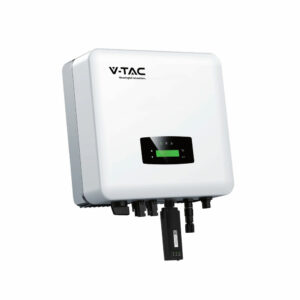
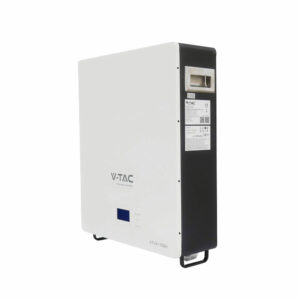
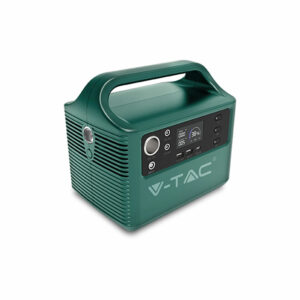
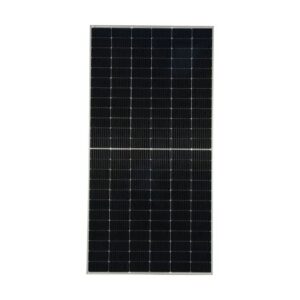
Factors Affecting Solar Panel Costs
Every home is different and will require an individually priced solar panel array depending on both power requirements and suitable roof space for mounting panels. Not sure if your roof is suitable? Use this free UK-based tool from the Energy Saving Trust that will look at your location, roof angle, and the direction it faces to the sun to help you decide.
The average size of solar panel array in the UK produces 4kW of power to supply a 3-bedroom house. 10 x 410W panels will produce just over 4kW or 7 x 545W panels will produce just under 4kW.
Other costs to factor in are installation, mounts and cabling, an inverter to convert DC power from the panels to AC electricity your home uses and battery storage to avoid wasting excess energy you produce.
Financial Incentives and Funding Options
Grants for solar power installation are getting fewer and further between. The current grants are called ECO4 and VAT Reduction as part of the Green Deal. The government portal to find out if you qualify is here. ECO4 will expire in March 2026.
The main financial incentive to install solar power on your home is the reduction in electricity bills and the opportunity to sell excess electricity that you generate during the day but don’t use or store in a battery back to the National Grid. The system to do this is called the Smart Export Guarantee which replaced the Feed-In Tariff (FiT) that you may have heard of.
Your SEG payment per kilowatt hour (kWh – the amount of energy your panels produce every hour) depends on what your energy supplier offers and currently varies from £0.02/kWh (Utility Warehouse) to £0.15/kWh (Octopus Energy).
Summary
While every installation is different, the average cost of installing solar panels on the roof of a home in the UK has dropped by almost 80% since 2008.
Reliable and efficient, monocrystalline solar panels are easily available in a variety of pack sizes and power outputs from our online store along with all the equipment you’ll need such as cabling, mounts, inverters, and batteries.
Independent, renewable energy is now within the reach of most homeowners. By joining the solar revolution you can reduce your energy bills, reduce your reliance on your utility provider and even reduce the impact you have on the planet. Reducing your carbon footprint may have minimal effect on global warming but at least now you’re a part of the solution.



